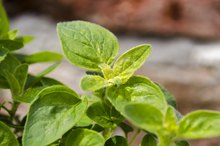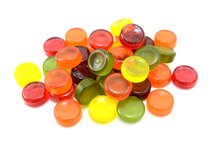Taking Reishi Mushrooms While Pregnant
Reishi mushrooms, which are often taken as an extract, have been used in traditional Chinese medicine for thousands of years, but there is some concern about their safety for pregnant women and fetuses. Before you decide to take reishi during pregnancy, you should know about recommended doses, potential side effects and risks. Remember, too, that it is always wise to consult your doctor before taking any supplements. This is especially true when you are pregnant.
Doses
According to drugs.com, the official pharmacopoeia of the People's Republic of China recommends 6 to 12 grams of reishi extract daily, although higher doses have been used in some clinical trials. Traditional practitioners, however, often recommend 0.5 to 1 grams daily for healthy people and between 2 and 5 grams daily for chronic illnesses. In the case of very serious illnesses, they sometimes recommended up to 15 grams per day.
Adverse Reactions
Lingzhi Side Effects
Learn More
According to the article on Drugs.com, side effects of reishi, which are rare and tend to be mild, include skin irritations, dizziness, dry mouth, nose bleed, bone pain and gastrointestinal disturbances. However, research published in the Summer 2008 issue of the "Canadian Journal of Clinical Pharmacology" showed that three different types of human cells taken from both adults and children became less viable when they were exposed to reishi extracts. The researchers said these results suggest that reishi extracts can be potentially toxic and should be used with caution.
Cautions
According to the health education website maintained by the Susan G. Komen Foundation, reishi should be used cautiously by persons taking medication for diabetes because it may lower blood sugar. The mushroom's ability to lower blood pressure makes it potentially risky for people with hypotension. People taking anticoagulants or who have bleeding disorders should avoid this food because it can have a blood-thinning effect. Exercise caution when using reishi mushroom powder because it has been linked to severe liver inflammation and death.
- According to the health education website maintained by the Susan G. Komen Foundation, reishi should be used cautiously by persons taking medication for diabetes because it may lower blood sugar.
- People taking anticoagulants or who have bleeding disorders should avoid this food because it can have a blood-thinning effect.
Reishi During Pregnancy
Milk Thistle & Dandelion on an Empty Stomach
Learn More
There is a dearth of scientific studies on the use of reishi during pregnancy. This fact alone makes it difficult to evaluate the risks and benefits of using it. An additional consideration is that reishi extracts are classifed as food supplements and such products are not tightly regulated in the United States, making it impossible to know how potent a particular extract is. The Susan G. Komen Foundation website states that the use of reishi during pregnancy and lactation is not recommended due to a lack of data.
- There is a dearth of scientific studies on the use of reishi during pregnancy.
- The Susan G. Komen Foundation website states that the use of reishi during pregnancy and lactation is not recommended due to a lack of data.
Related Articles
References
- "Canadian Journal of Clinical Pharmacology"; Toxicity of a Traditional Chinese Medicine, Ganoderma lucidum, in Children With Cancer; S.K. Gill, et al.; Summer 2008
- El Khoury D, Cuda C, Luhovyy BL, Anderson GH. Beta glucan: health benefits in obesity and metabolic syndrome. J Nutr Metab. 2012;2012:851362. doi:10.1155/2012/851362
- Benzie IFF, Wachtel-Galor S, editors. Herbal Medicine: Biomolecular and Clinical Aspects. 2nd edition. Boca Raton, FL: CRC Press/Taylor & Francis; 2011.
- Hijikata Y, Yamada S. Effect of ganoderma lucidum on postherpetic neuralgia. Am J Chin Med. 1998;26(3-4):375-81. doi:10.1142/S0192415X98000415
- Klupp NL, Chang D, Hawke F, et al. Ganoderma lucidum mushroom for the treatment of cardiovascular risk factors. Cochrane Database Syst Rev. 2015;2015(2):CD007259. doi:10.1002/14651858.CD007259.pub2
- Santesso N, Wieland LS. A summary of a cochrane review: Ganoderma lucidum (Reishi mushroom) for the treatment of cancer. Eur J Integr Med. 2016;8(5):619-620. doi:10.1016/j.eujim.2016.07.025
- Poniedziałek B, Siwulski M, Wiater A, et al. The effect of mushroom extracts on human platelet and blood coagulation: In vitro screening of eight edible species. Nutrients. 2019;11(12):3040. doi:10.3390/nu11123040
Writer Bio
Jessica Ramer began writing professionally in 2000. She has been published in "Macrobiotics Today" and has also written "Charlie Does the SAT Math." Ramer is a Kushi Institute-certified macrobiotic instructor who holds a B.A. in mathematics and a M.A. in psychology from Florida Atlantic University.









